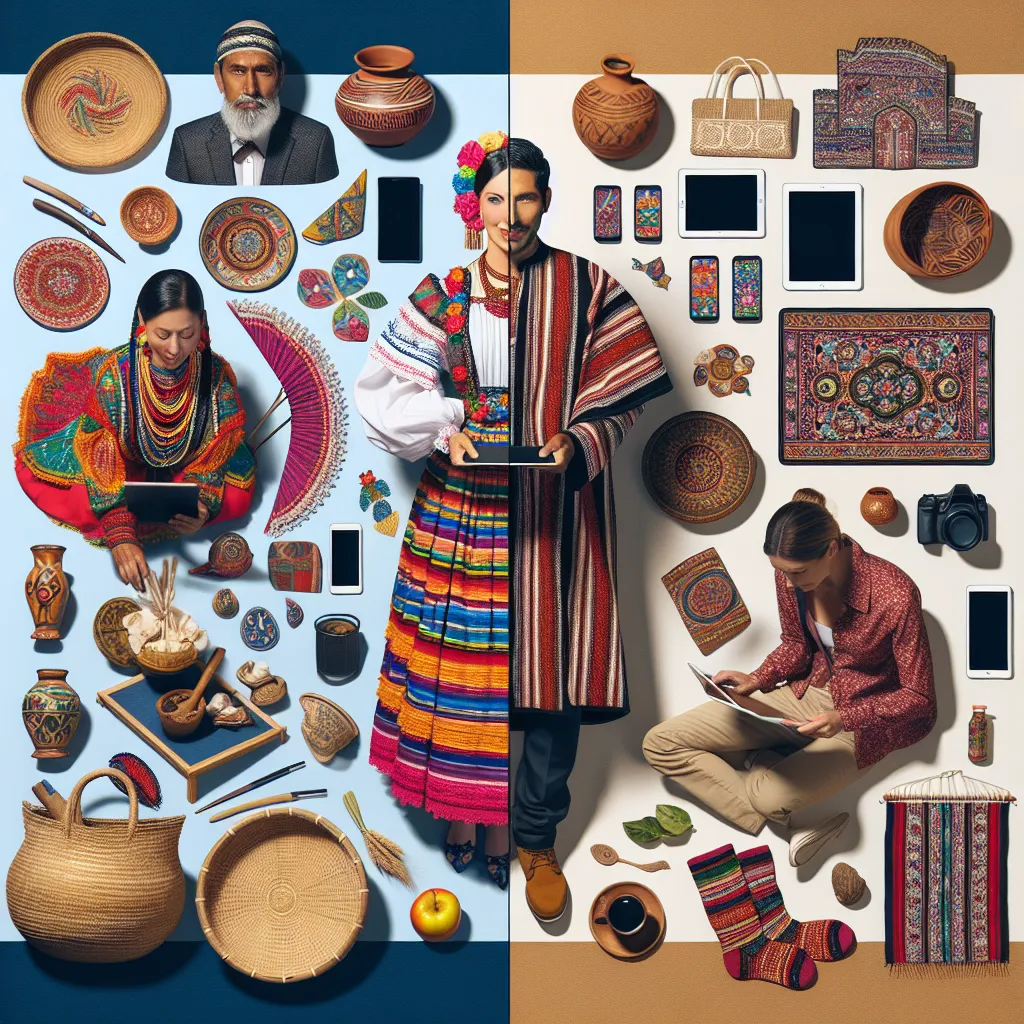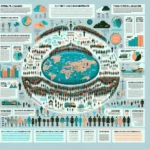In recent years, the topic of cultural preservation in the digital age has become increasingly prevalent in IELTS Writing Task 2 exams. This subject reflects the growing global concern about maintaining cultural heritage amidst rapid technological advancements. Based on trends observed in past IELTS exams and the current socio-cultural climate, it’s highly likely that questions related to this theme will continue to appear in future tests. Let’s explore a relevant question that has appeared in recent IELTS exams:
Some people believe that in the digital age, it is more important than ever to preserve traditional cultures and ways of life. To what extent do you agree or disagree with this view?
Analyzing the Question
This question asks for your opinion on the importance of preserving traditional cultures in the context of the digital era. Key points to consider:
- The phrase “more important than ever” suggests a comparison between the present digital age and previous times.
- “Traditional cultures and ways of life” refers to long-established customs, practices, and lifestyles.
- You need to state your level of agreement and provide reasons to support your stance.
Sample Essay 1 (Band 8-9)
In today’s rapidly evolving digital landscape, the preservation of traditional cultures and ways of life has indeed become more crucial than ever before. I strongly agree with this viewpoint, as the digital age presents both unprecedented challenges and unique opportunities for cultural conservation.
The digital revolution has ushered in an era of global homogenization, where local customs and traditions are increasingly overshadowed by a ubiquitous global culture. Social media platforms, international entertainment, and the internet have created a shared digital space that often promotes a uniform lifestyle, potentially eroding the distinctiveness of traditional cultures. This trend makes it imperative to actively preserve cultural heritage, lest we risk losing the rich tapestry of human diversity that has evolved over millennia.
However, the digital age also offers powerful tools for cultural preservation. Digital archives, virtual museums, and online platforms provide unprecedented means to document, share, and celebrate traditional cultures. For instance, endangered languages can now be recorded and taught through apps and online courses, reaching a global audience. These technological advancements not only aid in preservation but also in revitalizing interest in traditional cultures, especially among younger generations who are digital natives.
Moreover, the importance of cultural preservation in the digital age extends beyond mere nostalgia. Traditional knowledge and practices often hold solutions to contemporary challenges, such as sustainable living and community cohesion. By preserving these cultures, we maintain access to a wealth of wisdom that can inform and enrich our approach to modern issues.
In conclusion, while the digital age poses significant challenges to traditional cultures, it simultaneously heightens the importance of their preservation and provides innovative means to do so. By leveraging digital tools for cultural conservation, we can ensure that the diversity of human heritage not only survives but thrives in the modern world.
(Word count: 292)
Sample Essay 2 (Band 6-7)
I agree that it is very important to preserve traditional cultures and ways of life in the digital age. There are several reasons for this.
Firstly, the digital age is changing how we live very quickly. Many people spend a lot of time online and use technology for work and entertainment. This can make people forget about their traditional culture. For example, young people might prefer watching videos online instead of learning traditional dances or crafts. If we don’t try to keep these traditions alive, they might be lost forever.
Secondly, preserving culture is important for our identity. Traditional cultures teach us about our history and where we come from. This helps people feel connected to their community and gives them a sense of belonging. In the digital world, where everyone can access the same information, having a unique cultural identity becomes even more valuable.
However, the digital age also gives us new ways to preserve culture. We can use the internet to share information about traditional practices with people all over the world. For instance, we can make videos of traditional ceremonies or create websites about local customs. This helps keep these traditions alive and can even make more people interested in them.
In conclusion, I believe that preserving traditional cultures is very important in the digital age. While technology can make us forget our traditions, it can also help us protect and share them. We should use digital tools to keep our cultural heritage alive for future generations.
(Word count: 238)
Key Writing Tips
-
Structure: Both essays follow a clear structure with an introduction, body paragraphs, and a conclusion. The Band 8-9 essay uses more sophisticated paragraph transitions and a more nuanced argument.
-
Vocabulary: The higher band essay employs more advanced vocabulary and collocations (e.g., “unprecedented challenges,” “global homogenization,” “rich tapestry of human diversity”). The Band 6-7 essay uses simpler but still effective vocabulary.
-
Grammar: The Band 8-9 essay demonstrates a wider range of complex structures, while the Band 6-7 essay uses simpler sentences but still maintains grammatical accuracy.
-
Task Response: Both essays address the question directly, but the Band 8-9 essay provides a more in-depth analysis and considers multiple perspectives.
-
Coherence and Cohesion: The higher band essay uses more sophisticated linking words and phrases to connect ideas smoothly.
Important Vocabulary to Remember
-
Cultural preservation (noun) /ˈkʌltʃərəl ˌprezəˈveɪʃn/: The protection and conservation of cultural heritage.
-
Digital age (noun) /ˈdɪdʒɪtl eɪdʒ/: The current era characterized by widespread use of digital technologies.
-
Homogenization (noun) /həˌmɒdʒənaɪˈzeɪʃn/: The process of making things uniform or similar.
-
Erode (verb) /ɪˈrəʊd/: To gradually destroy or diminish.
-
Revitalize (verb) /ˌriːˈvaɪtəlaɪz/: To give new life or vigor to something.
-
Indigenous (adjective) /ɪnˈdɪdʒənəs/: Originating or occurring naturally in a particular place.
-
Heritage (noun) /ˈherɪtɪdʒ/: Valued objects and qualities such as cultural traditions that have been passed down from previous generations.
-
Globalization (noun) /ˌɡləʊbəlaɪˈzeɪʃn/: The process by which businesses or other organizations develop international influence or start operating on an international scale.
 Cultural Preservation in Digital Age
Cultural Preservation in Digital Age
Conclusion
The topic of cultural preservation in the digital age is likely to remain relevant in IELTS Writing Task 2. Future questions might explore specific aspects such as:
- The role of social media in promoting or endangering cultural traditions
- Government policies for protecting cultural heritage in the digital era
- The impact of virtual reality on experiencing traditional cultures
To practice, try writing your own essay on the question provided or on one of these potential topics. Share your essay in the comments section for feedback and to engage in a productive discussion with other learners. This active practice is an excellent way to improve your IELTS writing skills and gain deeper insights into this important topic.
For more information on related subjects, you might find these articles helpful:
- How Technology Affects Cultural Heritage
- The Impact of Globalization on Cultural Identity
- Challenges of Maintaining Cultural Heritage
Remember, consistent practice and exposure to a variety of topics will help you excel in the IELTS Writing Task 2. Good luck with your preparation!


